Year 7 Simplification Worksheets
Algebra Addition Pyramids (A)
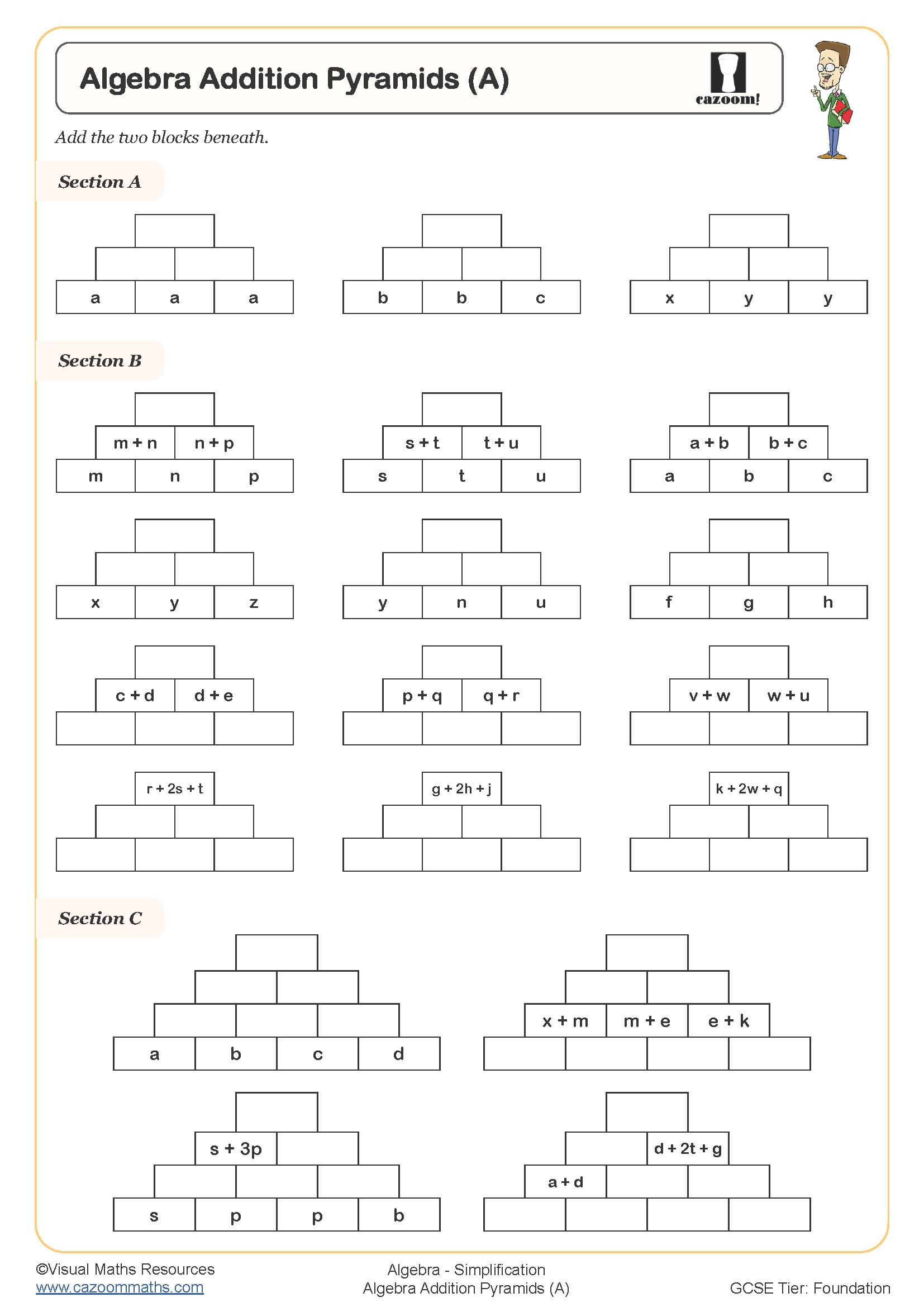
Algebra Addition Pyramids (B)
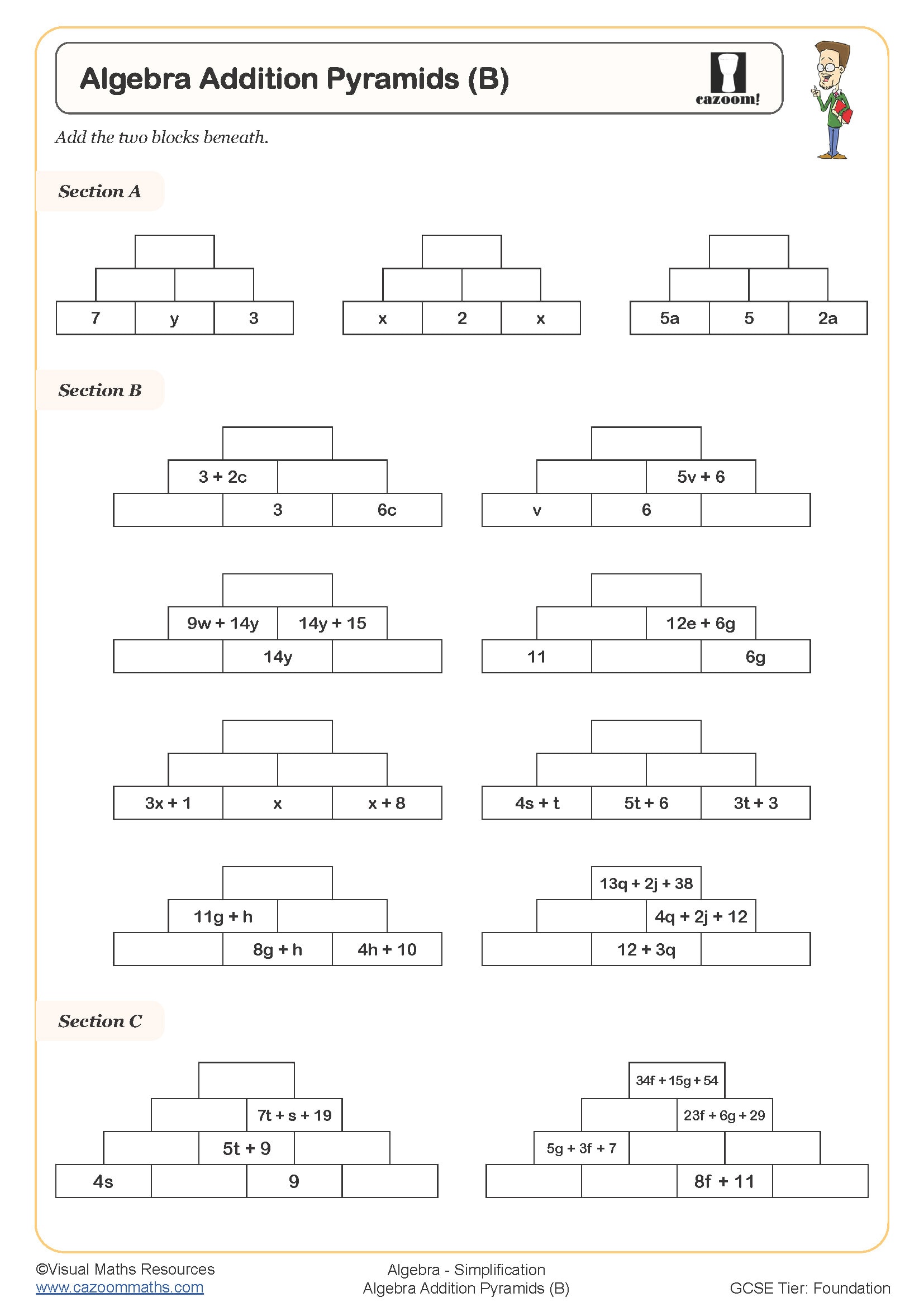
Algebra Addition Pyramids (C)
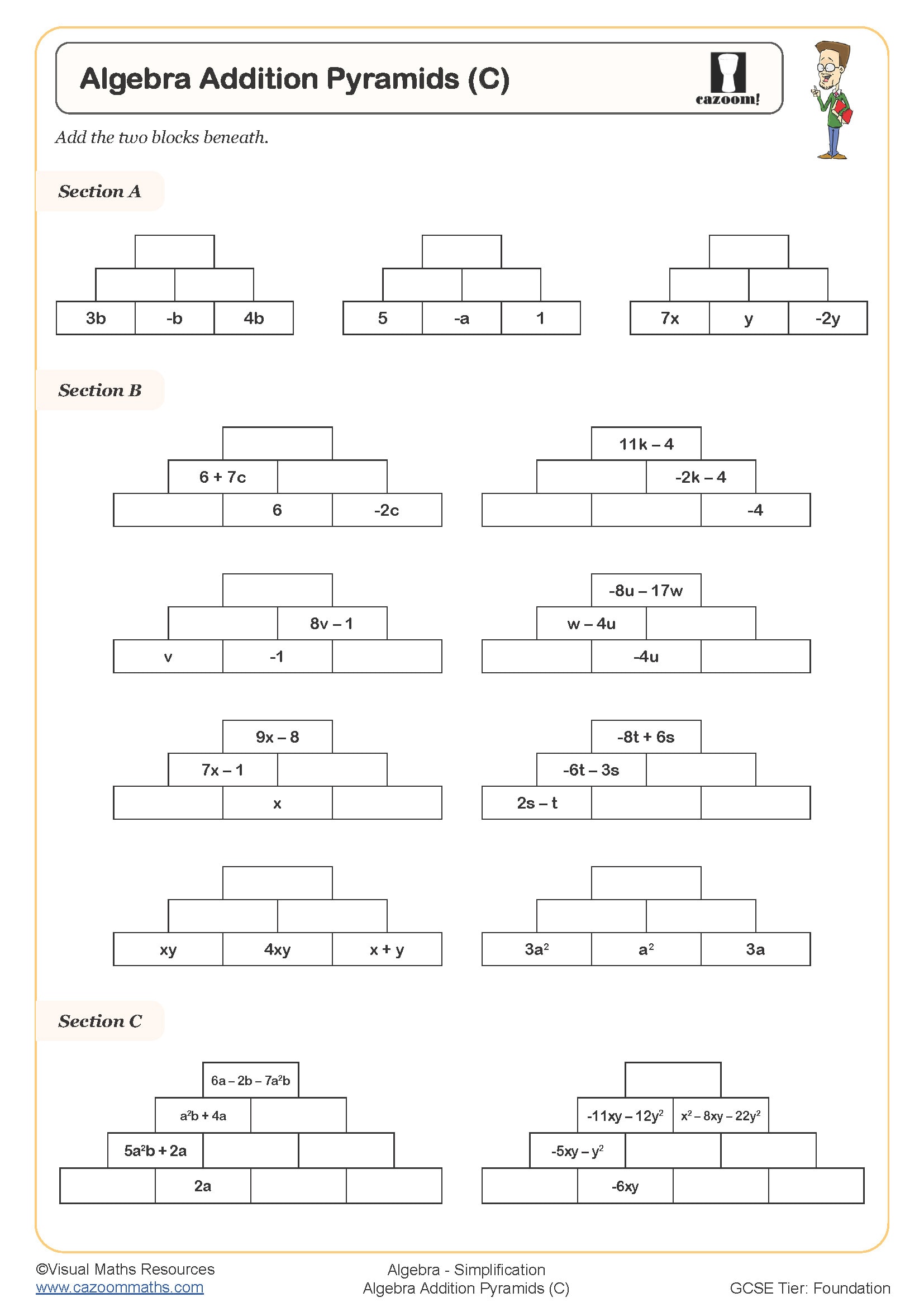
Algebra Multiplication Pyramids (A)
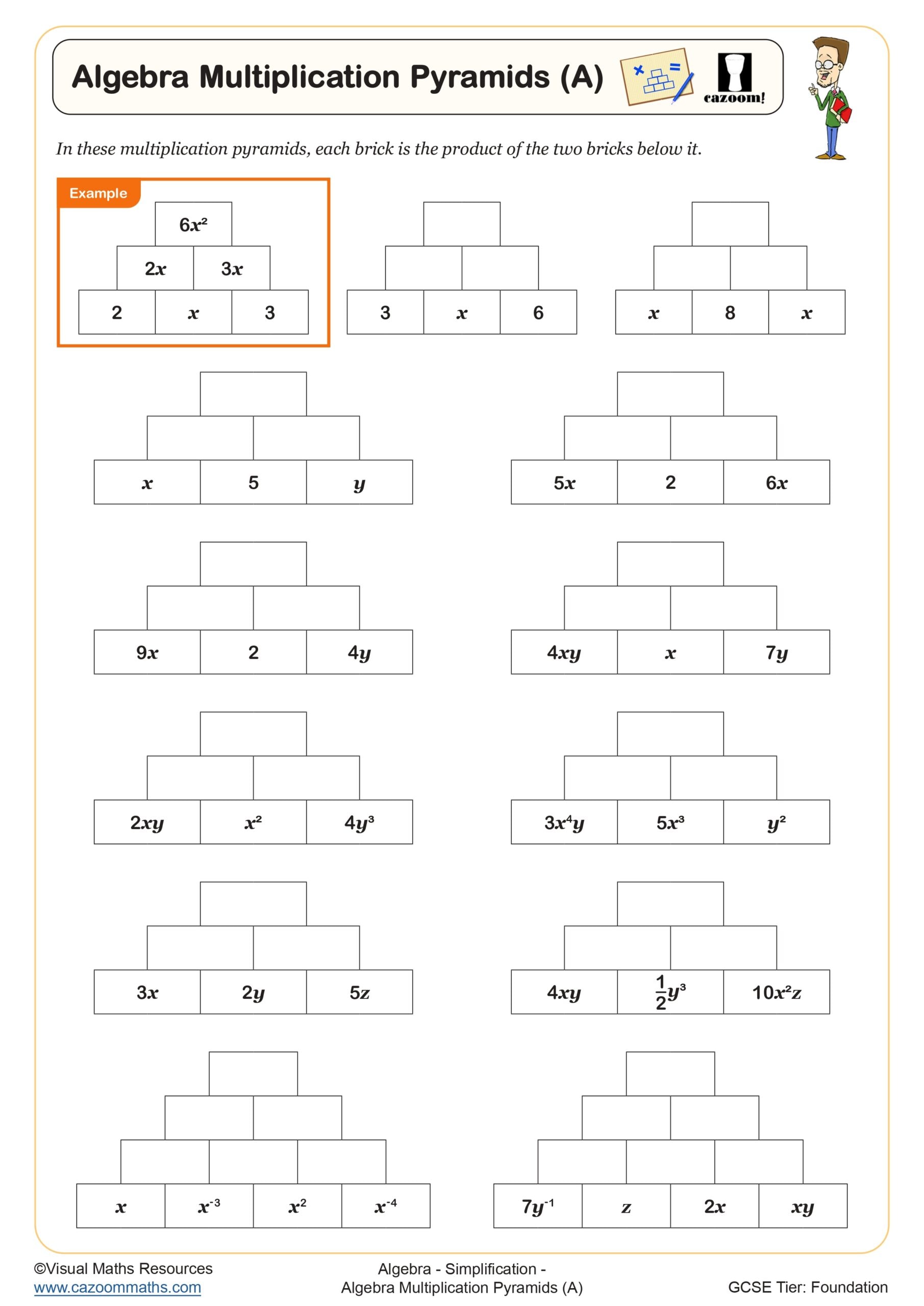
Algebra Multiplication Pyramids (B)
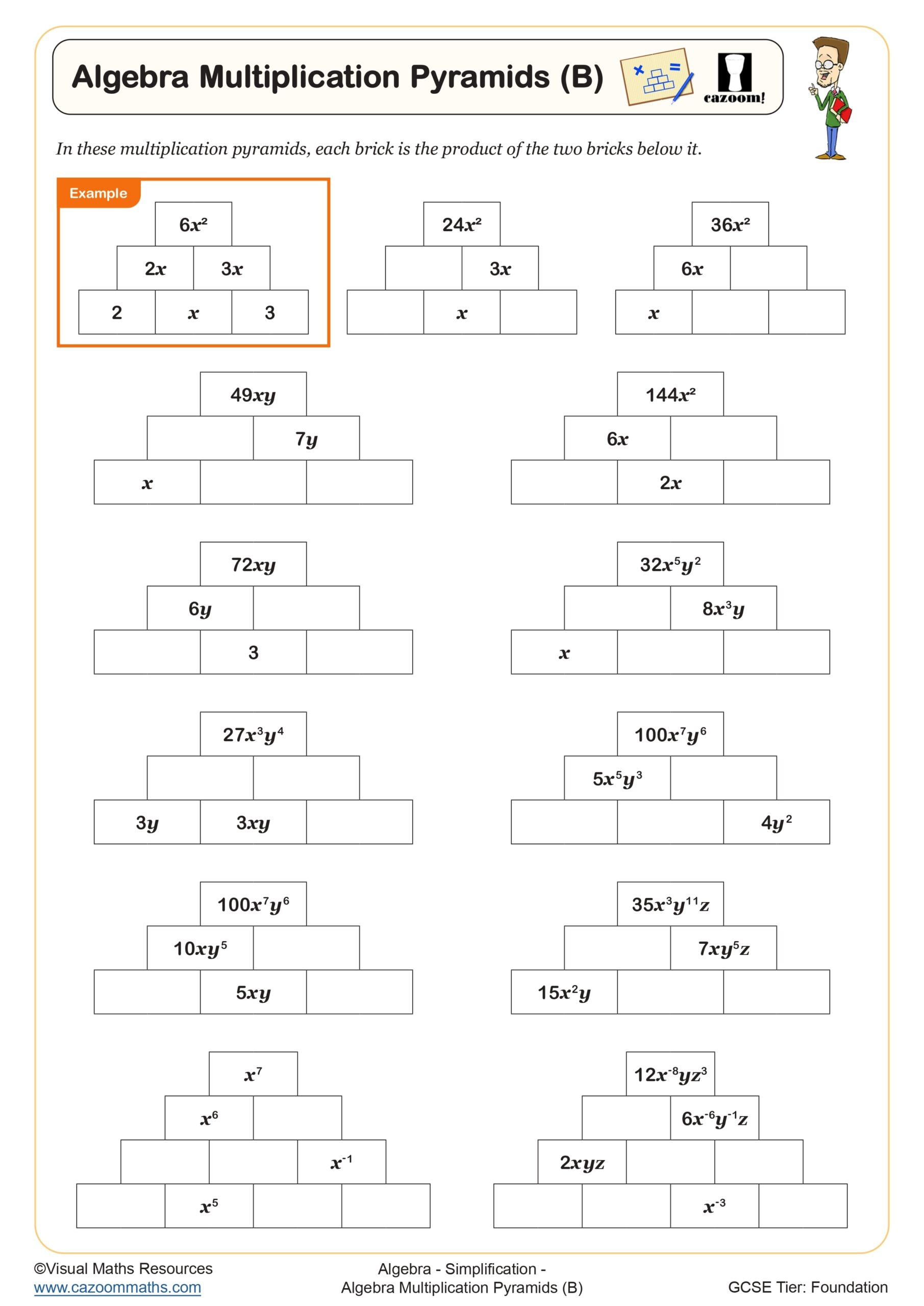
Algebraic Multiplication Grids
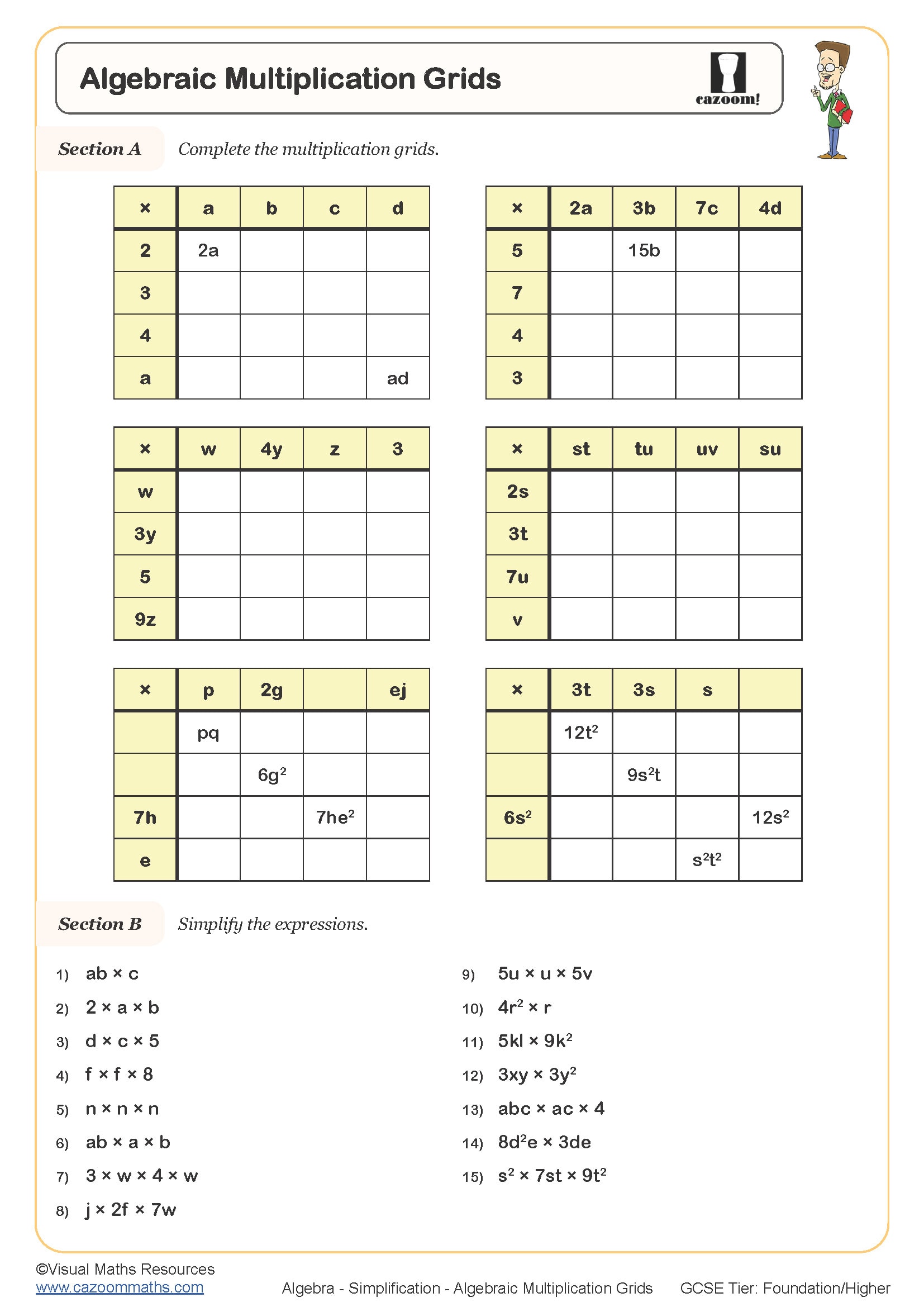
Algebraic Perimeters
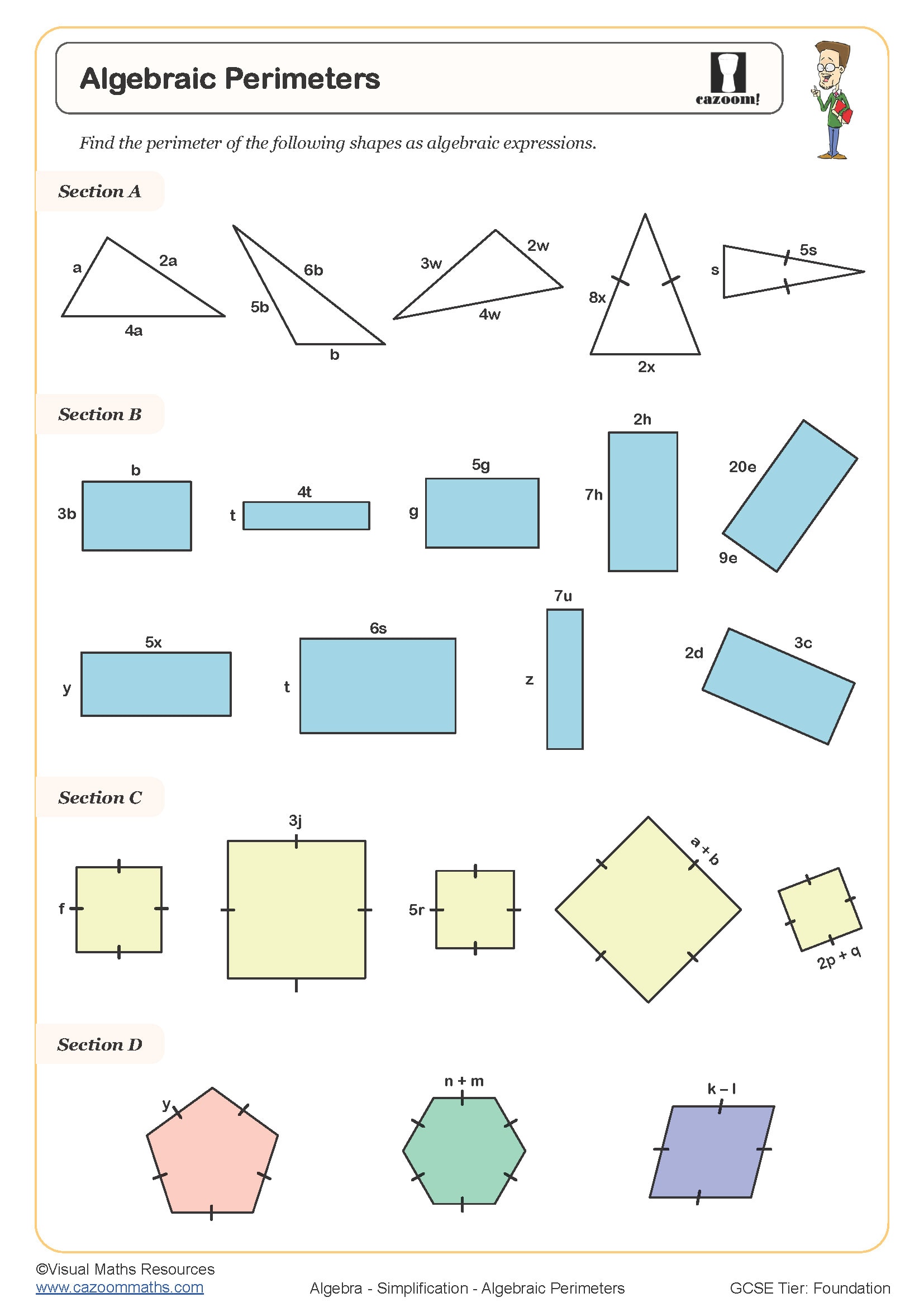
Collecting Like Terms - Using Algebra Tiles
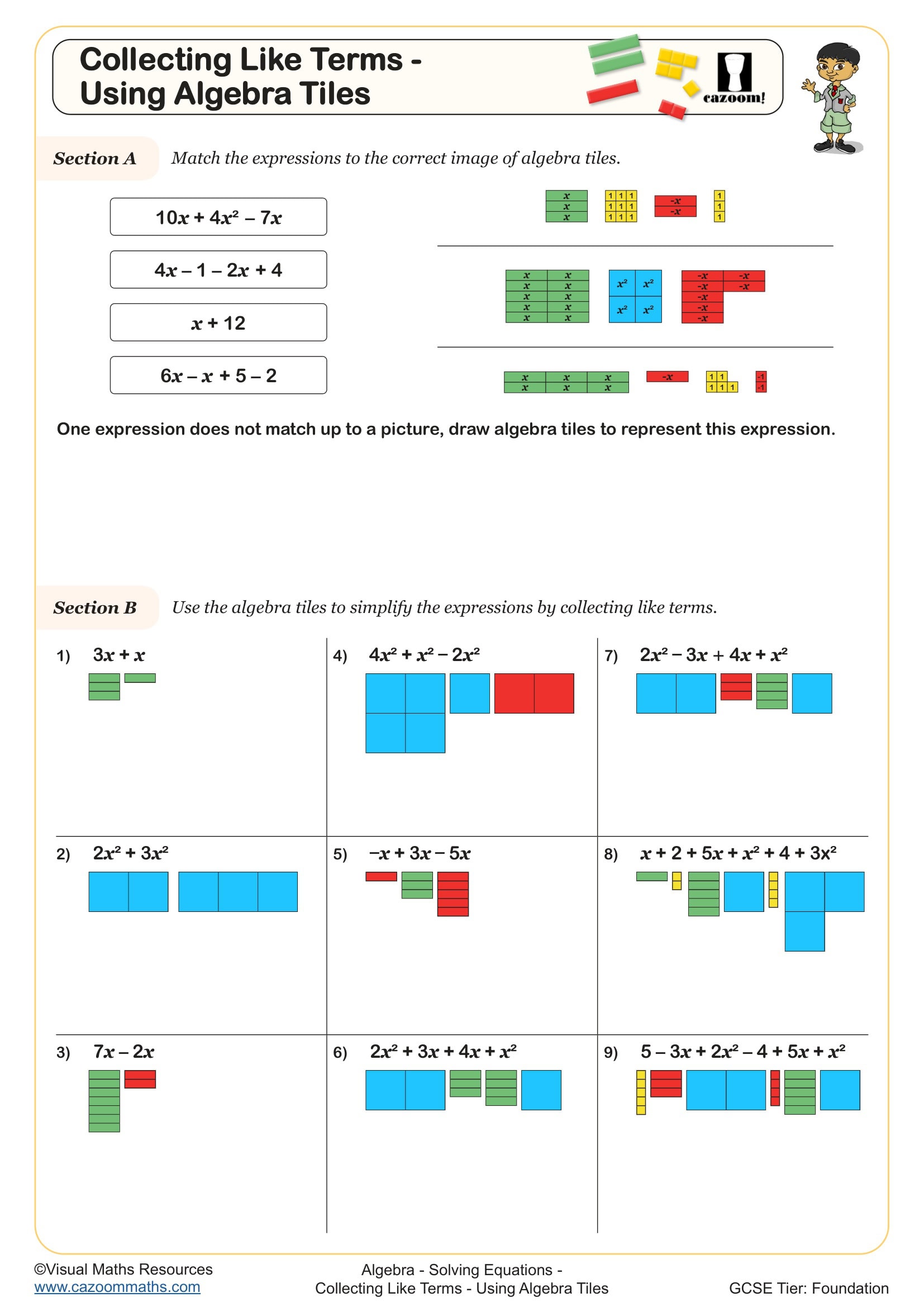
Introducing Algebra Tiles
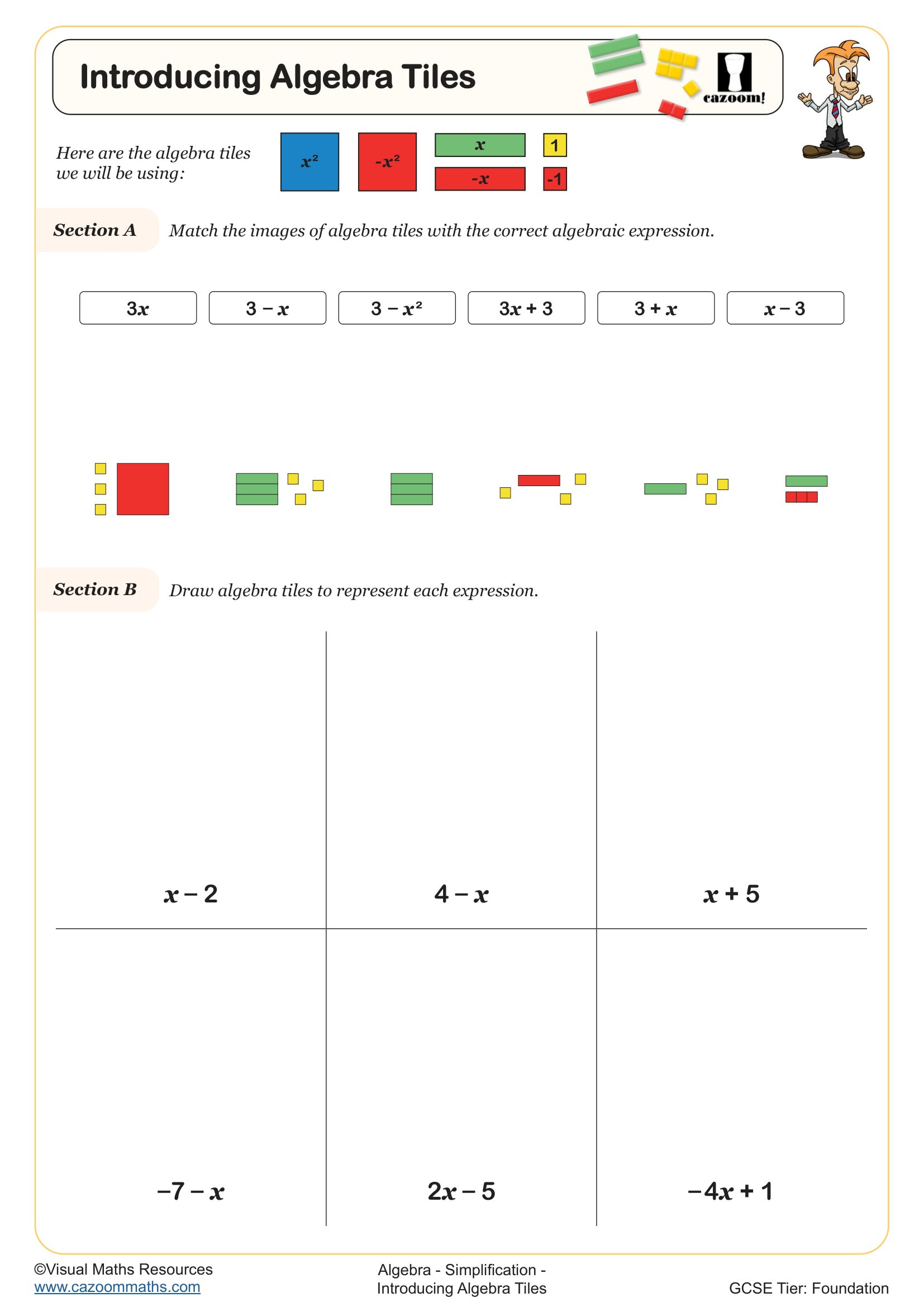
Manipulating Equations
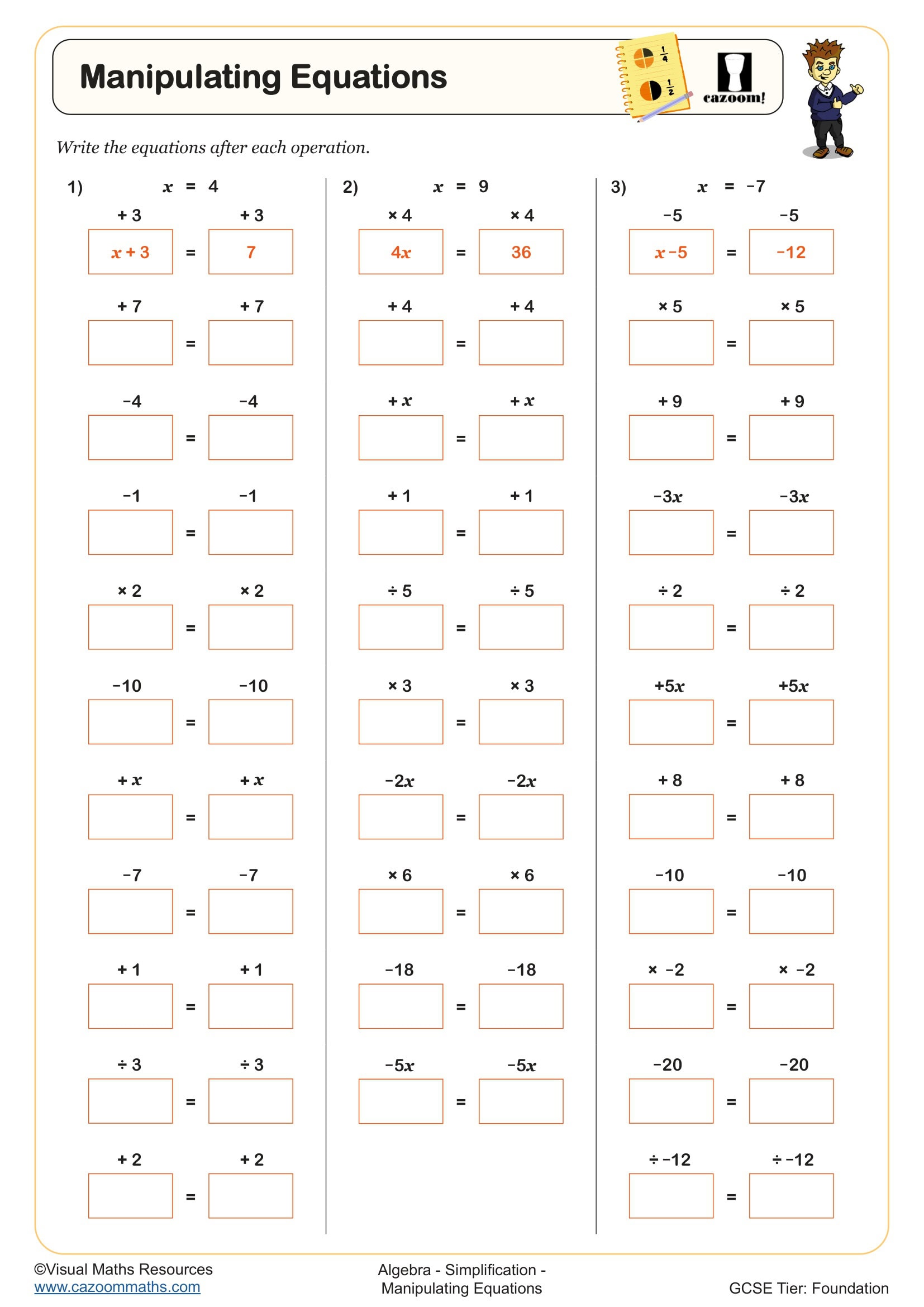
Simplifying Expressions
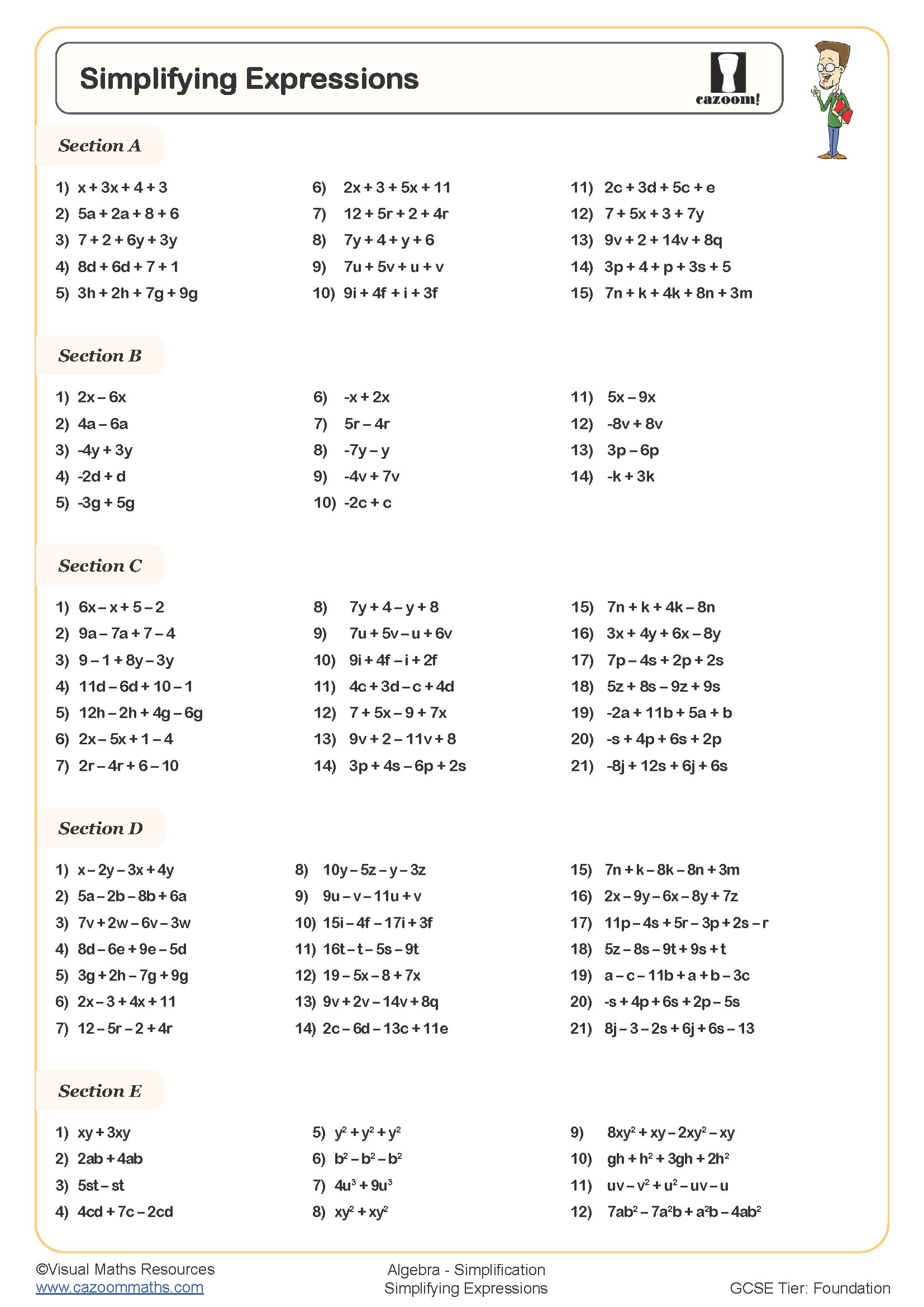
Spotting Like Terms
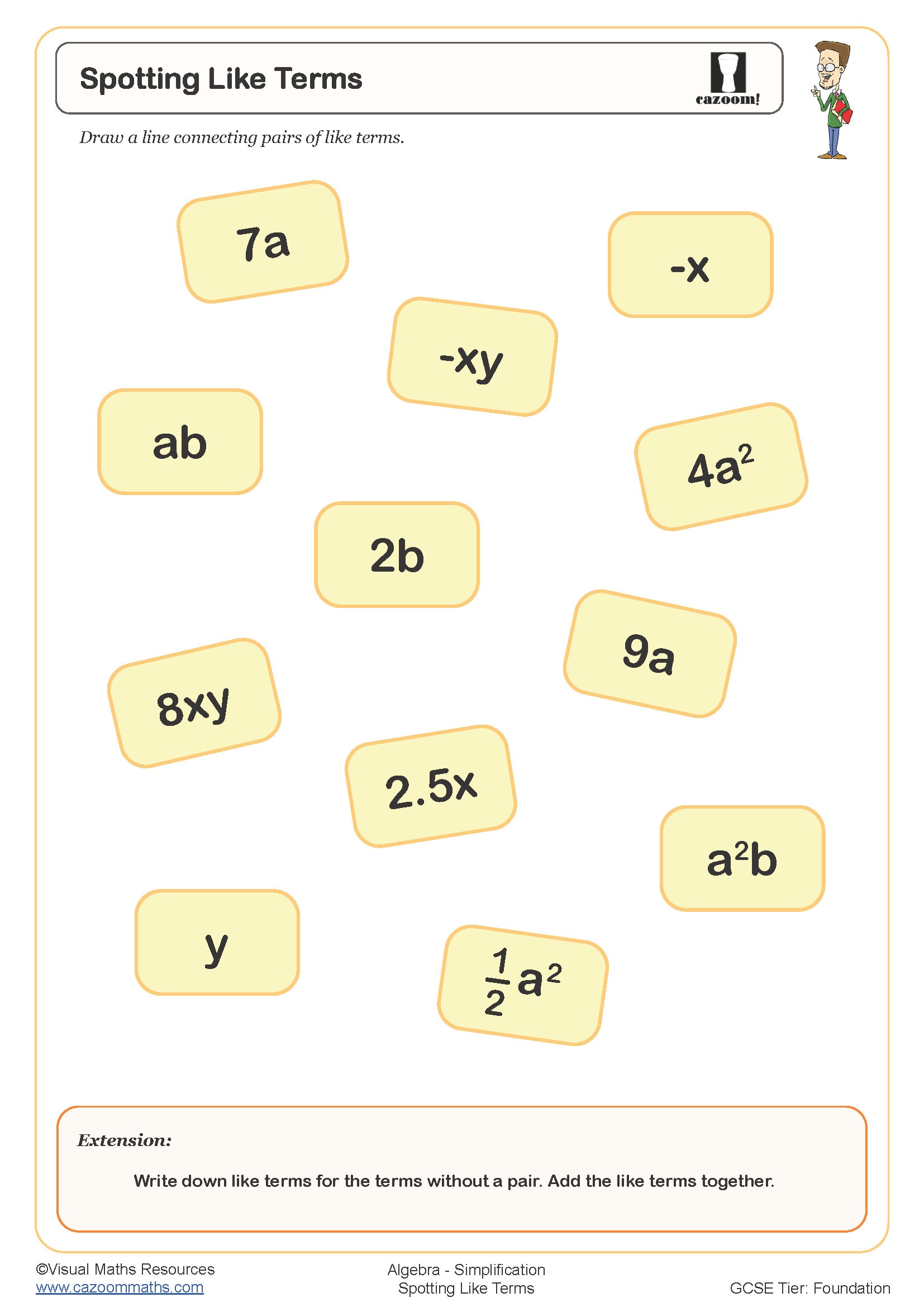
Think of A Number Expressions
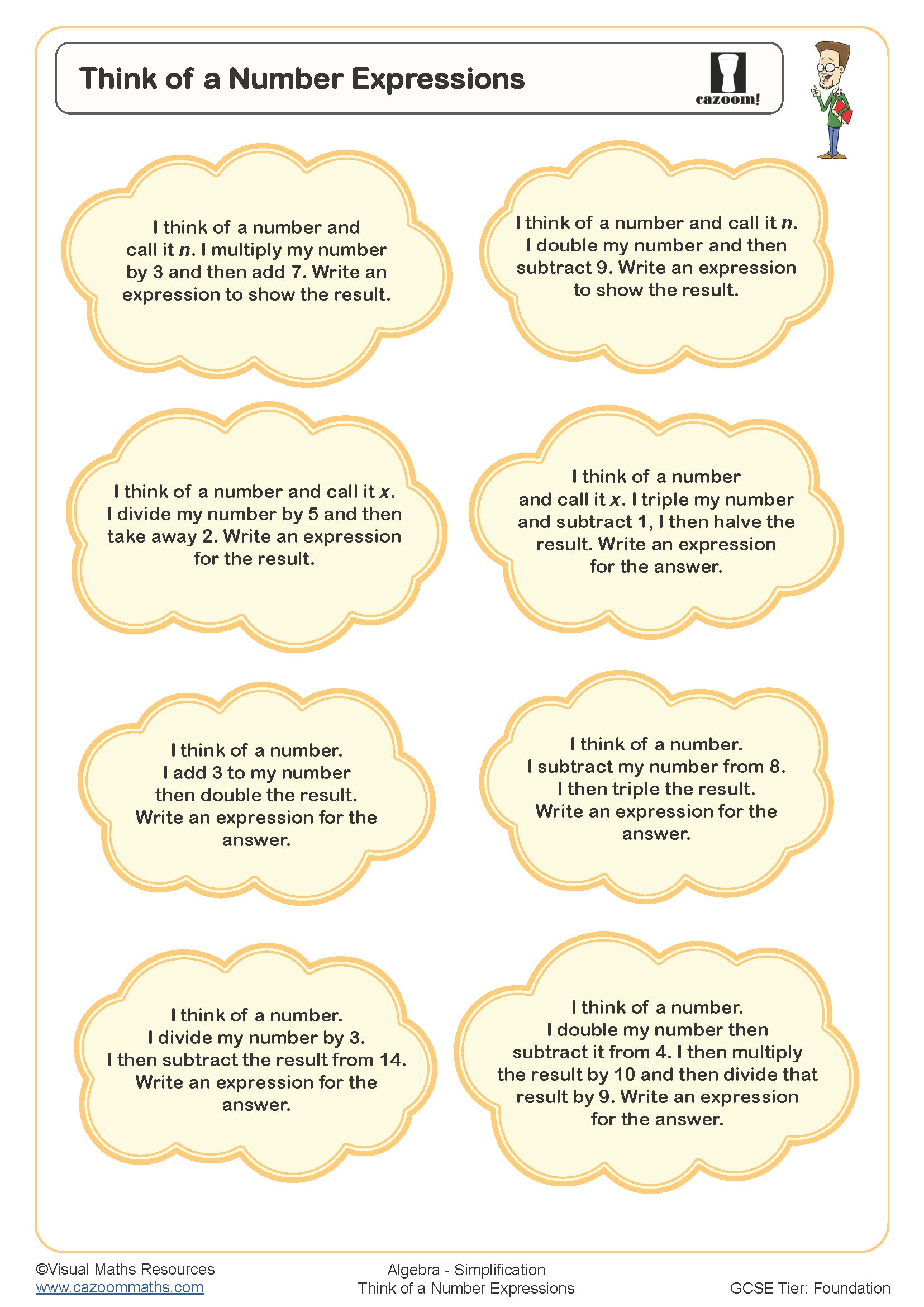
Words and Expressions
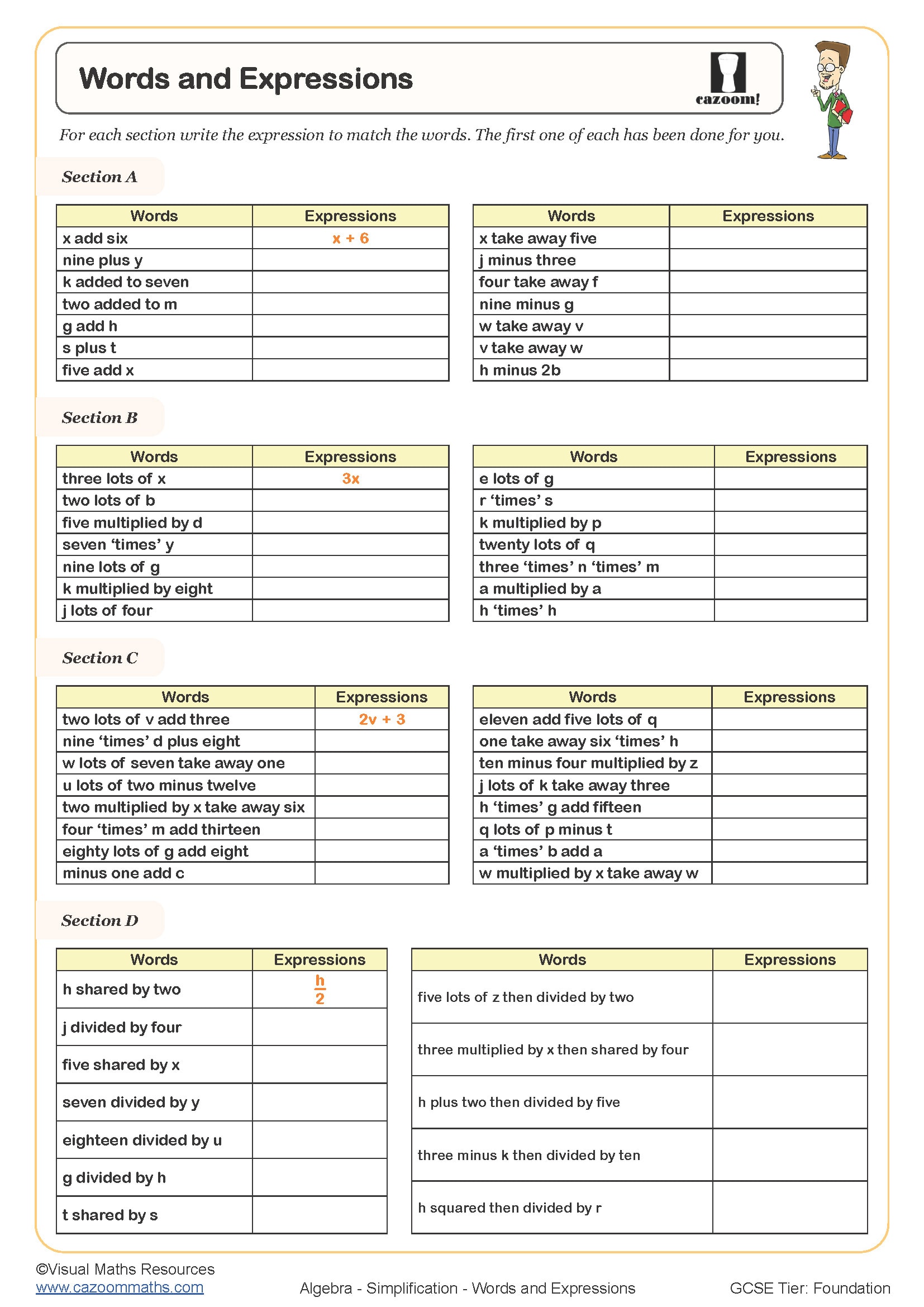
All worksheets are created by the team of experienced teachers at Cazoom Maths.
The Benefits of Using Printable Year 7 Simplification Worksheets Every Week
Frequent practice with simplification fosters the ability to recognise patterns, which form the foundation for all subsequent algebraic work. Students naturally start to make the connection between symbolic manipulation and concrete number operations when they are exposed to these ideas on a regular basis. This systematic approach promotes mathematical resilience while preventing the spread of common misconceptions. Each worksheet's increasing level of difficulty guarantees that students succeed early on and keeps them motivated as complexity rises. Regular practice creates automatic recall of important simplification rules, which frees up cognitive resources for problem-solving instead of memorising procedures. Students internalise the reasoning behind algebraic conventions through repeated exposure to a variety of question types.
Among the particular learning advantages are:
• Learn to effectively collect similar terms.
• Improves fluency with algebraic notation
• Improves the ability to expand brackets and increases comfort with negative terms.
• Lays the foundation for factorisation
• Creates methodical working procedures
• Enhances one's capacity for mathematical reasoning
Curriculum Coverage: Worksheet Topics and Skills KS3 Students Will Learn
These worksheets scaffold learning from basic term collection through to multi-step simplification challenges. Starting with single-variable expressions, students progress naturally towards combining multiple algebraic techniques. Visual representations support conceptual understanding before moving to purely symbolic work. The inclusion of worked solutions reveals the thinking process behind correct simplification, helping learners understand not just what to do but why each step matters.
The core skills covered include:
• Collecting like terms – combining similar algebraic expressions together
• Simplifying with addition/subtraction – managing positive and negative terms
• Multiplying terms – understanding coefficient and variable multiplication rules
• Dividing algebraic expressions – applying division laws to simplify fractions
• Expanding single brackets – distributing multiplication across bracketed terms
• Simplifying indices – recognising and applying index laws correctly
• Mixed operations – combining multiple simplification techniques systematically
• Substitution basics – replacing variables with given values accurately
• Writing expressions – translating word problems into algebraic form
Tired of Mistakes in Algebra? Year 7 Simplification Worksheets Are the Fix
Math departments with years of experience understand that good simplification worksheets need to strike a balance between appropriate challenge levels and accessibility. This is accomplished by these resources' thoughtful question sequencing and options for differentiation that accommodate all skill levels. Answer sheets allow for the rapid identification of common errors while saving a significant amount of marking time. Whether used for homework, revision, main activities, or starters, the worksheets' uniform format facilitates the development of effective routines. While foundation exercises help students who need more practice, teachers especially appreciate the extension questions that test more advanced students. Students can concentrate fully on honing their skills rather than deciphering instructions when information is presented clearly because it lessens cognitive load. Busy departments looking for dependable, curriculum-aligned resources will find these worksheets invaluable due to their versatility in being used in a variety of lesson contexts.
Why Real-Life Maths Starts With Year 7 Algebra Worksheets
Understanding simplification extends far beyond the maths classroom, forming the foundation for logical thinking across numerous contexts.
• Computer programming – writing efficient code by eliminating redundancy
• Engineering calculations – streamlining complex formulas for practical use
• Financial planning – combining multiple costs into manageable totals
• Scientific research – reducing experimental data to meaningful patterns
• Architecture and design – optimising measurements and material calculations
• Sports analytics – simplifying performance statistics for quick comparison
• Music theory – understanding chord progressions and harmonic relationships
• Problem-solving careers – breaking complex challenges into simpler components